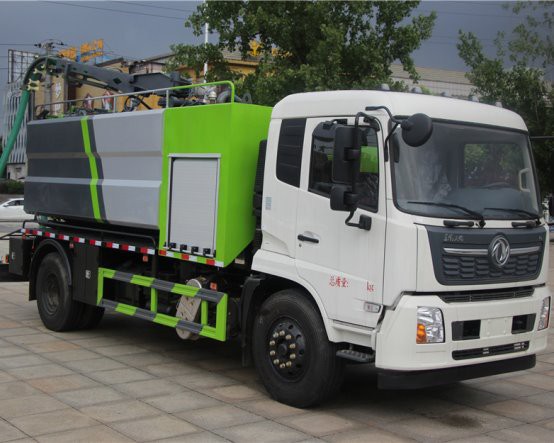In today’s waste-conscious society, the demand for waste removal and recycling services has skyrocketed. If you are considering investing in a lucrative venture, a dumpster business is a solid option. This article delves into the essentials of acquiring a dumpster business, outlining the key points you need to know, exploring opportunities, and providing practical tips for success.
Understanding the Dumpster Business Model
The dumpster rental industry is an essential service in both urban and suburban areas. It involves providing customers with containers to help them dispose of unwanted items, whether for home renovations, cleanouts, or construction projects.
The Market Demand
The rise of DIY projects and home renovations has considerably increased the demand for dumpster rentals. Homeowners, contractors, and businesses alike require efficient waste disposal solutions.
Types of Dumpster Services
- Residential Dumpster Rentals
- Commercial and Construction Sites
- Special Events (e.g., festivals and community clean-up events)
Benefits of Owning a Dumpster Business
Investing in a dumpster business offers numerous advantages:
Steady Revenue Stream
With ongoing construction projects, seasonal clean-ups, and home renovations, dumpster rental businesses typically enjoy steady demand throughout the year.
Relatively Low Overhead
Starting a dumpster business usually requires lower initial investments compared to other industries. You primarily need to invest in dumpsters, a truck, insurance, and permits.
Flexible Operations
You can choose to operate locally or expand regionally, allowing you the freedom to grow your business based on the demand.
Finding a Dumpster Business for Sale
Online Marketplaces
Websites like BizBuySell, Craigslist, and local business listings are excellent resources for finding dumpster businesses for sale. Be sure to search for specific keywords and filter by location.
Industry Connections
Networking with local contractors, waste management professionals, or joining industry-specific groups can help you uncover potential opportunities.
Business Brokers
Hiring a business broker can significantly ease your process of finding available dumpster businesses, especially if you are unfamiliar with buying and selling businesses.
Evaluating a Dumpster Business
Key Metrics to Consider
When evaluating a dumpster business for sale, consider the following metrics:
Financial Performance
| Metric | Description |
|---|---|
| Revenue | Total income generated by the business over the past years. |
| Profit Margin | Net income as a percentage of revenue; indicates profitability. |
| Customer Base | Evaluate the number of recurring customers and contracts. |
Asset Condition
Inspect the dumpsters and trucks for wear and tear. Ensure they meet safety regulations and reflect the business’s operational capacity.
Market Trends
Research local market trends to determine whether the existing customer base has growth potential in the coming years.
Financing Your Dumpster Business Purchase
Options for Financing
- Small Business Loans
- Personal Savings
- Investment from Family or Friends
- Partnerships with Investors
Preparing Financial Documents
Having your financial documents in order is crucial when applying for loans:
- Personal and Business Credit Reports
- Tax Returns
- Business Plans
Legal and Regulatory Considerations
Permits and Licensing
Before operating, ensure you have the necessary permits based on local laws. This could include business licenses, waste management permits, and vehicle permits.
Insurance Requirements
Obtaining proper insurance coverage is essential to protect your assets and liability. General liability and commercial vehicle insurance are must-haves.
Effective Marketing Strategies for Your Dumpster Business
Online Presence
Investing in a professional website and using SEO strategies can help you attract customers. Focus on local keywords like “dumpster rental in [Your City].”
Social Media Marketing
Platforms such as Facebook and Instagram can help promote your services effectively. Sharing success stories and before-and-after project photos can engage potential customers.
Networking with Local Contractors
Fostering relationships with local contractors can provide a steady stream of referrals and partnership opportunities.
Tips for Running a Successful Dumpster Business
Customer Service Focus
Offer exceptional customer service to build loyalty and encourage referrals. Timely deliveries and pickups can set you apart from competitors.
Regular Fleet Maintenance
Schedule regular maintenance for your dumpsters and trucks to prevent unexpected breakdowns and ensure efficient operations.
Utilizing Technology
Incorporate software that helps manage orders, schedules, and invoices to streamline operations and enhance customer experience.
Frequently Asked Questions
1. How much does it cost to start a dumpster rental business?
The cost varies widely based on location and fleet size but can range from $10,000 to $50,000 for a small operation.
2. What are the profit margins in the dumpster rental industry?
Profit margins typically range from 10% to 40%, depending on operational efficiency and market demand.
3. Do I need a specific license to operate a dumpster rental business?
Yes, you will need various permits and licenses depending on your locality. Always check local regulations before starting.
4. Can I manage a dumpster business part-time?
Yes, many owners operate part-time, but consider the demands of the business to ensure you can meet customer needs.
5. What strategies can I implement for acquiring customers?
Online marketing, networking with local businesses, and offering promotions or discounts can be effective strategies.
6. How do I determine pricing for rental services?
Research competitors’ pricing, consider your operating costs, and offer competitive rates while ensuring profitability.





